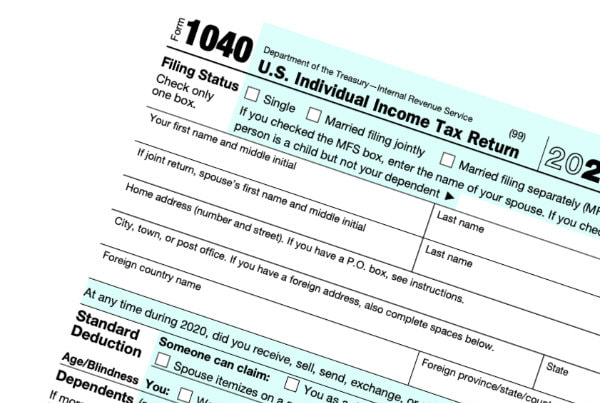Louis Divorce Mediation ~ Online and In-Person Mediation in Chicago
|
Divorce mediation clients sometimes come to me believing they already have complete agreement on the issues that need to be resolved for them to move forward with divorce.
More often, however, the mediation process helps them to make mutually acceptable decisions they were unable to agree on themselves. By exploring these issues fully we can come to the best agreement for both parties. Some clients don’t consider mediation at first, believing they must be substantially in agreement on all the issues for mediation to work. A new client recently called me to say that she and her husband had decided not to come to mediation, since they hadn’t worked through all the issues that they wanted to resolve for their uncontested divorce. That left me to wonder about this misconception: how many couples think they can’t come to mediation until they already agree on how they are going to live apart? Mediation is the opportunity to use my training and experience to help you work through the many important issues and decisions that you face. Of course, it is always good when we begin mediation with some common understandings, but it is certainly NOT a requirement to have reached agreement on every issue. As I explained to this new client, mediation is the opportunity to use my training and experience to help you work through the many important issues and decisions that you face. Of course, it is always good when we begin mediation with some common understandings, but it is certainly NOT a requirement to have reached agreement on every issue. Separation and divorce carry uncertainty and fear that can often interfere with our ability to “be on the same page.” Whether you feel you have discussed every option or you are not sure where to begin, an experienced mediator can help you both gain the focus to think clearly and speak freely in a safe environment. As mediator I am not the judge, but, rather, I am your trusted host in the conversation, turning your contested issues into a mutually agreed-upon understanding that will lead to an uncontested divorce.
1 Comment
In an effort to address the economic impacts of the Coronavirus pandemic, Congress has approved and President Biden has signed the American Rescue Plan Act of 2021.
Among the many provisions of this act, there are some that are particularly relevant for divorce mediation clients who are negotiating taxes. What You Should Know
Timing Some of these changes will only be in effect for 2021, unless extended by Congress. Overall, for many divorcing couples with children who are facing the economic challenges of transitioning from one household to two, the American Rescue Plan Act of 2021 should provide significant short-term economic relief. Overall, for many divorcing couples with children who are facing the economic challenges of transitioning from one household to two, the American Rescue Plan Act of 2021 should provide significant short-term economic relief. As with all decisions involving taxes, consulting a tax professional is encouraged. Divorce can be a tough and trying emotional experience. There are no easy ways of coping with that anguish, uncertainty and emotional turmoil. Mediation, as a process, is designed to keep a challenging transition from being even more stressful. But what else can be done on a daily basis to deal with the stress of divorce?
In researching the topic of depression, I came across a behavioral therapy acronym called “GRAPES”. Embedded in this simple word are some helpful daily tips that can be applied to everyone’s life, especially those in the midst of divorce. G stands for Gentleness R stands for Relaxation A stands for Accomplishment P stands for Pleasure E stands for Exercise S stands for Socializing Let’s explore how you can make GRAPES work for you in your daily life while going through a divorce: Be gentle with yourself. During difficult times, we can be very hard on ourselves. By doing just the opposite—being kind to ourselves—we can help ourselves move forward and not dwell on the disappointments of the past. Even if we only spend a short time each day doing something relaxing, it can help us to find our own emotional equilibrium. Find time for relaxation. Yes, life is busy, but even if we only spend a short time each day doing something relaxing, it can help us to find our own emotional equilibrium. Pausing to read a fun article, listening to music, playing with a pet and enjoying a hobby are a few possibilities. Accomplish something today. This doesn’t have to be a big deal. When we look at something we’ve done (make a list of simple tasks and cross them off as completed), we are reminded that it is a symbol of progress. Even filing that stack of papers, deleting unwanted emails or putting away accumulated clutter is progress. Any small accomplishment is worthy of note. Do something that gives you pleasure. We are allowed to have fun even when we’re not at our best. Find something to do that you enjoy, from taking the time to enjoy a cup of coffee to connecting with friends. Get some exercise. This can be as simple as taking a walk. Exercise is good for our bodies and can stimulate our minds in a very positive way. Socialize with others. In the time of Covid-19, this goal can be a little harder to satisfy. But by spending some time with others on a socially distanced walk, on Zoom, by phone or perhaps through Meetup-com or other social platforms, we can overcome a sense of aloneness that is often present during divorce. This is a time to expand yourself socially as much as the current situation allows. Gentleness, relaxation, accomplishment, pleasure, exercise, socializing—whether you are in the midst of divorce or just in the midst of life, these are tips that can make your days go better. |
Categories |
David Louis, MPA, CDFA® • Louis Mediation Services - Chicago
|
Chicago Office: 1700 W Irving Park Rd., Suite 105, Chicago, IL 60613
Northbrook Office: 555 Skokie Blvd., Suite 500, Northbrook, IL 60062 |
Copyright © 2024




 RSS Feed
RSS Feed